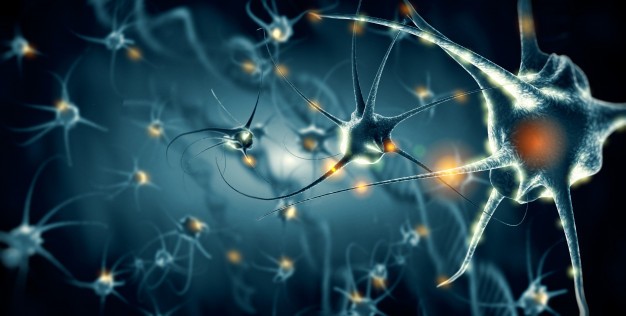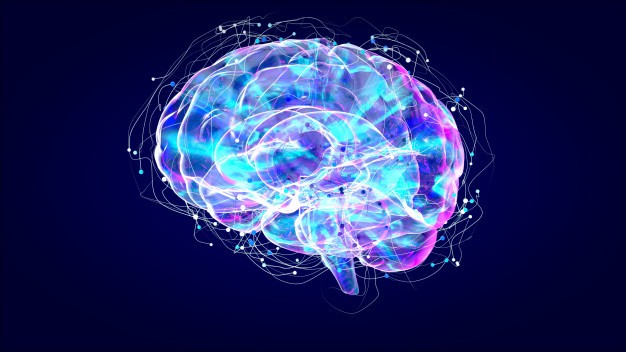
In an interview when the pandemic was an unavoidable topic, and with the World Alzheimer's Month motto in September, we launched the debate on neurodegenerative diseases, in particular Alzheimer's, and the commitment of scientific research to offer an effective response to control the advance of a disease that affects an increasingly number of people worldwide, as explained by Professor Joaquim Ferreira. “All epidemiological data suggest that the number of patients with Alzheimer's and other neurodegenerative diseases is increasing, given the changing demographic structure of the population worldwide, as there are more older people. But it is also thought that there may be other epidemiological factors that lead to an increase in the number of patients with Alzheimer's.”
We speak of “particularly fragile” diseases and, in a pandemic context, it is important to say that “many of the patients with this type of pathology suffered, and there was a worsening of the clinical conditions during the lockdown period, for reasons related to the change in routines and suspension of some therapeutic activities that took place with some regularity”. In addition, there are moments of great expectation and anguish from a scientific point of view, “because many of the drugs that were being developed for the treatment of Alzheimer's had negative results, which is frustrating, namely when they result from long-term research projects. Therefore, we run the risk that the research that has been going on for 10, 20 years may not bring the results we would all expect”.

In contrast, “there is a drug that is currently in an advanced stage of evaluation by the FDA, the North American drug agency, and if a positive evaluation is confirmed, we may, for the first time, have a drug specifically approved to try to delay the advance of the disease”. This is good news with positive implications for neurodegenerative diseases research, “because, in fact, Alzheimer's is the most prevalent disease in neurodegenerative diseases and, therefore, has an implication that goes beyond what this disease is by itself. What we learn or gain in terms of knowledge in this field certainly has implications for drug development programmes in many others”, he commented, also pointing out that Alzheimer's affects the general population. “I would say that there is no family today with no affected members with dementia, either because of Alzheimer's alone, or other dementias (the term dementia, at heart, is a loss of cognitive faculties. It encompasses Alzheimer's and also many other clinical situations). Thus, it is extremely important to talk about the disease, because it affects the sick and affects those who are next to them, be family members, be caregivers”.
When asked about the management of home visits, restricted during pandemic times, depriving many elderly people with mental illness from contact with their families, Joaquim Ferreira believes that “it is fair to discuss these issues, but it is very difficult to make decisions”. He justified his position due to the uncertainty that prevailed during the last months. “I think that today we have less uncertainty than we had four or five months ago, but, in fact, uncertainty reigned and recognizing uncertainty is worthy. I would say that during these months, I have heard many very safe comments, of great ignorance, because they do not incorporate uncertainty in relation to many of the topics we are discussing. This applies to everything, also to the way we should proceed regarding this group of our population”.

The research work carried out over the past few years has concluded that “there is a big link between our cognitive, intellectual and physical condition, so when patients start to deteriorate, when there is cognitive decline, there is also decline in some motor functions”, the Professor explains, revealing that the link between cognition and the motor part is a reality “both from the point of view of the evolution of the disease and from the point of view of treatment”. “We now know that if we carry out physical activity, we improve the physical aspect, band also the cognitive part. If we conduct cognitive training, we improve cognition and also the physical part, so clearly there is a huge link between cognition and global and motor health. Obviously, when transposing this to pandemic times, we have a paradox, that is, patients are no longer stimulated from a physical and cognitive point of view, they stop going out, they stop doing physiotherapy, they stop walking. Thus, from the point of view of motor stimulus, they get worse, and we know that it worsens the motor and the cognitive aspects”.
In the face of a pandemic, the medical recommendations for these patients are forcibly interrupted, placing everyone in a dilemma, considered by many to be greater than the pandemic itself. “From a cognitive point of view, what we recommend is that patients are stimulated, that they are exposed to a variety of situations. Therefore, if people stop seeing other patients, healthcare professionals and family members, if they stop going to day centres and playing games, there is a confluence of factors that is negative in all aspects, whether physical or intellectual". The Professor stressed "that the pandemic is an extreme test to what Science has been telling us in recent years, which is this convergence between cognitive and physical health, as they are interconnected. Thus, we somehow anticipated this potential worsening”.
As a neurologist who follows up many patients in these circumstances, Joaquim Ferreira witnesses the worsening of the clinical condition of a substantial number of patients. "The challenge we now face is to know if we are able, in the end, to do things so that they return, at least, to the previous stage".
As for home visits, “there are no magic solutions, there are no certainties, we do not even know how this virus spreads. Therefore, how can I know exactly what happened in many of the scenarios where the disease spread in homes or other types of institutions? We know that the virus is highly contagious and, therefore, it is difficult to make light decisions when the consequences are not yet well known. Recognizing this difficulty is an act of “nobility”, defends Joaquim Ferreira, admitting the discomfort caused by “criticism towards those who manage many of these institutions”. “I, for one, assume that in many of these situations, everything was apparently done according to the recommended rules and yet it was impossible to prevent deaths. Because we are talking about deaths, we are not talking about people having a clinical problem who have to take an antibiotic and they are fine. So, it is very difficult, there are no ideal decisions and recognizing this uncertainty is a good practice, I think.” Despite the restrictions imposed by the pandemic, and recognizing that “nothing replaces physical touch”, the Professor considers the possibility of devising “more or less imaginative solutions that minimize the consequences”, namely visits “with physical barriers and facilitated contact, using the technologies we have at our disposal”.

However, “the element of greatest cruelty is the time factor”, explains Joaquim Ferreira. “How can we ask someone to, for a period of time that we don't know very well what will be, not to have a set of relationship activities with the family, when the period we are asking for this not to happen is almost equivalent to the survival period of these people?!”. When we have a person over 80, who suffers from a neurodegenerative disease, the truth is that "there is no time to postpone things much". "We are asking for a set of physical contact and family relationship activities to be postponed when, in practice, those people do not have much time to indulge in that luxury, do they?" These are situations for which there are no easy solutions and which Joaquim Ferreira closely monitors, not only from an academic point of view but also from a clinical point of view. "I follow patients with these pathologies and I have responsibility for the care of these patients. Therefore, I can say that it is not easy to make decisions that incorporate all these variables that are more than legitimate, and many of them, cruel".

That the current pandemic "will change everyone's life for a period, no one has any doubts", but will the change be so profound and disruptive as to become a milestone in our history? Joaquim Ferreira understands that this is also a question, the answer to which is debatable, since “human memory of behaviour is very short”. “At this moment, our routines changed brutally. Yes, they have. Will that change the way we relate, travel, hold meetings, interact? Yes. How long will this change last?! I don't know... And I don't think anyone in good faith can answer that for sure. What we have seen in other important events in our history is that the memory for the impact of these events is normally short.”
The reflection led to the conclusion that the change we were all confronted with is, in the words of the Professor, related to “the economic crises we have been experiencing recently, that is, there is an economic crisis and this has an enormous impact on each one individually and on families and institutions. However, shortly afterwards, exactly the same acts and procedures and, eventually, the same mistakes that led to these situations are being committed. Therefore, I would say that even in situations of great sociological impact, after some time, there is a resumption of procedures, acts and behaviours that we would not think would return soon”, he concludes.
Sofia Tavares
Editorial Team

